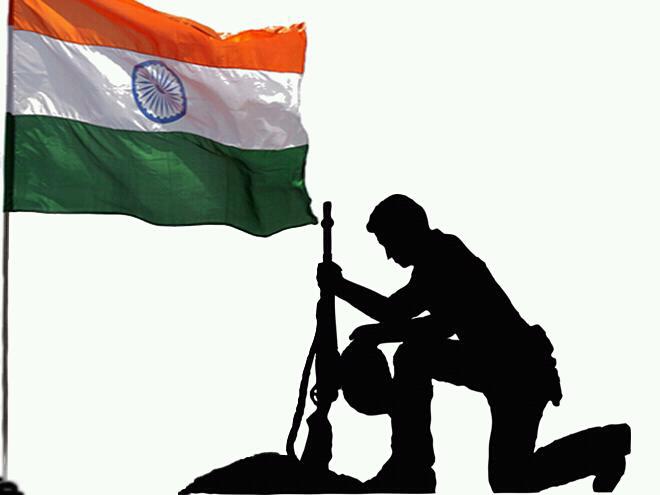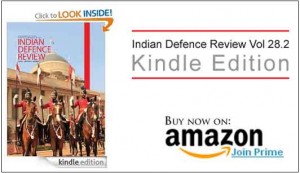Unfortunately, India is not likely to get a super-General as adviser to the defence minister and also member of the cabinet committee on security for advice on defence and national security matters even after the strong recommendations of various committees appointed by the government from time to time.
Lack of political consensus on the issue has been cited as the reason for non-implementation. Irrespective of the reasons, the real loser is the nation since a very important issue concerning national security remains unaddressed.
After the 1999 Kargil conflict the Arun Singh committee, constituted as part of group of ministers (GoM) in April 2000 under the chairmanship of L K Advani former Deputy Prime Minister recommended the creation of the Chief of Defence Staff (CDS) post since the existing system of chiefs of staff committee had not been able to deliver on important issues.
In its wisdom, the committee recommended that the CDS should be created for carrying out four main functions – providing single-point military advice, administering strategic forces, ensuring jointness in the armed forces and enhancing planning process through inter-service coordination and prioritising. The BJP Govt’s National Security Review declared on May 11, 2001 was a bold path-breaking step, especially in terms of acceptance of the requirement of a CDS for India.
However, when it came to implementation of this report, there was opposition to creation of the CDS both from within the armed forces as well as by the politico-bureaucratic combine. While some in the military felt their identity might get swamped, bureaucratic resistance stemmed from the feeling that the CDS may become more powerful than the cabinet secretary. The political hierarchy, meanwhile, felt apprehensive about too much power vested in one person.
As a result, while a majority of the recommendations were implemented, including the creation of a full-fledged office of the integrated defence staff comprising almost 200 officers, its head, the CDS, has not been put in place till date. Lack of political consensus on the issue has been cited as the reason for non-implementation. Irrespective of the reasons, the real loser is the nation since a very important issue concerning national security remains unaddressed.
In view of the large number of legal complaints in the various courts against the MoD on pay and allowances discrepancies, defence procurement scams and lurking threat perception from our adversaries China and Pakistan, Naresh Chandra Committee, a 14-member task force on national security was set up by the Union government on 21 June 2012 to suggest ways to revamp of defence management in the country.
…the officers from the defence services up to the level of joint secretaries should be appointed for better and smooth functioning of the MoD and also help in avoiding large scale defence scams.
Naresh Chandra, a former bureaucrat, headed the committee which members included former military officers, intelligence chiefs, diplomats and strategic analysts. Air Chief Marshal (retired) S. Krishnaswamy, Lt. General (retired) VR Raghavan, the former Department of Atomic Energy chief Anil Kakodkar, Admiral (retired) Arun Prakash, the former R&AW head KC Verma, the former Union Home Secretary V.K. Duggal, G Parthasarathy, former diplomat, and senior journalist Manoj Joshi were the other members in the committee.
The main objective behind the constitution of the committee was to contemporarise the Kargil Review Committee’s recommendations, which was tabled in the Parliament on 23 February 2000. Besides, the task force was also asked to examine the state of country’s border management and restructuring system. The Committee submitted its report to the government on 8 August 2012.
The 14-member Naresh Chandra Taskforce on national security, in its report had recommended a permanent CoSC chairman to exercise “administrative control” over the nuclear arsenal, head a separate joint special forces command, prioritize modernization of the armed forces and prepare annual defence operational status reports.
The Chiefs of Staff Committee is a forum for service chiefs to discuss matters having a bearing on the activities of services and to advise the ministry. Its members include Chief of the Army Staff (COAS), Chief of the Naval Staff (CNS), Chief of the Air Staff (CAS), and Chief of Integrated Defence Staff (a non-voting member). The position of chairman devolves on the longest serving Chief of Staff and rotates amongst the chiefs of services. However, it has no powers to take any strategic or administrative decision-making.
The permanent CoSC chairman, a four-star general like the Army, Navy and IAF chiefs who currently constitute the panel, was to also be an “invitee” to the Cabinet Committee on Security (CCS) and the National Security Council (NSC) as well as advise the defence minister on all matters concerning two or more Services.
Much like the politico-bureaucratic combine scuttled the recommendation for a CDS after the 1999 Kargil conflict, the defence ministry has expressed major reservations against the fresh proposal for a permanent CoSC chairman as recommended by the Committee.
But sources said the MoD, in its “recent comments” to the NSC Secretariat under the PMO, virtually rejected the creation of a permanent CoSC chairman post as well as some other “critical reforms” desperately needed to reform the country’s higher defence management that were suggested by the Naresh Chandra Taskforce.
The fear that a CDS will erode the supremacy of the civil over the military is unfounded. The CDS will not be a Supreme Commander. He will only be an Inter-Service professional coordinator with individual Service Chiefs…
But MoD’s reservations could well push the proposals into the cold storage. Successive governments have used the pretext of the need to evolve a political consensus, as also lack of complete agreement among the three Services, to keep the crucial CDS post in suspended animation since Kargil. Using the same grounds, the MoD has rejected the permanent chairman of CoSC post this time.
MoD has also rebuffed the taskforce’s proposal for “cross-staffing” by posting military officers to the ministry to bridge the civil-military disconnect. It was felt this would develop synergy and truly integrate Service HQs with MoD, instead of the cosmetic changes witnessed over the years. MoD, however, said this view was “contestable” since existing mechanisms and decision-making was based on “joint consultation” and “integrated advice from all components”.
In the Ministry of Home Affairs IPS officers are posted up to the level of additional secretaries that is why it has better coordination in the MHA. Similarly the officers from the defence services up to the level of joint secretaries should be appointed for better and smooth functioning of the MoD and also help in avoiding large scale defence scams.
Opposing the permanent CoSC chairman, MoD said the present system of handling the nuclear arsenal by the Strategic Forces Command, with a three-star general in command and “a separate and distinct management structure”, did not warrant a change.
Similarly, MoD held there was “no scope” for CoSC chairman to be invited for CCS and NSC meetings because “only certain ministers are invited” to them. Moreover, the current system of the three Service chiefs and the collegiate CoSC briefing the defence minister was “functioning well”.
The existing tri-Service integrated defence staff (IDS) is adequately handling modernization of the armed forces, major joint exercises and other tasks, the defence ministry said.
India suffered in the 1965 Indo-Pak and 1999 Kargil operations because there was no CDS to supervise and coordinate operations.
The PMO, especially national security advisor Shivshankar Menon who is discussing the taskforce report with all stakeholders, and the CCS are yet to take a final view on the taskforce report. Defence Minister A K Antony on 18 June said that the final decision on the Naresh Chandra Task Force report decision would be taken by the CCS, trying to downplay his ministry’s rejection of its recommendations for creation of a permanent CoSC and other critically critical defence reforms. It was still at the discussion stage and “I have referred it to an independent committee and after getting its advice, the matter will be referred to the CCS”, he said.
It is high time that the CCS implements the recommendations of the Task Force report in the interest of the national security, integrity and sovereignty of the country.
The fear that a CDS will erode the supremacy of the civil over the military is unfounded. The CDS will not be a Supreme Commander. He will only be an Inter-Service professional coordinator with individual Service Chiefs having the right of direct access to the Head of the Government. It also needs to be mentioned that Army Chiefs in different countries have staged military coups but no CDS has ever done so. India’s Defence Services are fully committed to upholding democratic values and in a well-established democracy like ours with such diversity, and of continental dimension, the question of a military coup does not arise.
In the US, France, Germany, UK and Australia, the creation of CDS equivalent posts had to be forced through Acts of Parliament, overcoming the objections of the bureaucracy and military. The political authority there felt convinced that the national interest would be best served by such a step. We could take a leaf out of their book.
India suffered in the 1965 Indo-Pak and 1999 Kargil operations because there was no CDS to supervise and coordinate operations. However, the Indo-Pak 1971 operation was greatly successful because Air Marshal Sam Manekshaw acted like a CDS because the then Prime Minister Indira Gandhi had given him all the powers of the CDS.







The country interest is last in the priority list of bubus,bureuacreats and politician . The smooth functioning and proper co-ordination not only in peace time during war become very important as speed of action or we can say first strike is become priority to win the war. To over rule the bureucrats slow moving action with low priority CDS was recommended for direct advice to DM and if need be to the CCD( Cabinet cammittee of defence). Sooner the post is created better for the country and for the forces. There may be some inter arms problems that is a minor issue which over period of time can be sorted out by creating CDS post. This will give a major boost to the morale of the forces and help in speedy decision making during war and peace.
The Neta babu Topi combine want to maintain status quo . The golden gooze with the biggest budget allocation reaps millions in commissions and rent seeKING FOR ALL IN MOD AND FINANCE WITH NO ACCOUNTABILTY OR RESPONSIBILTY
FOR ANY OF THE DECISIONS TAKEN .
Respected Mr. Sam Manekshaw was a Field Marshal and not an Air Marshal if I am not wrong.